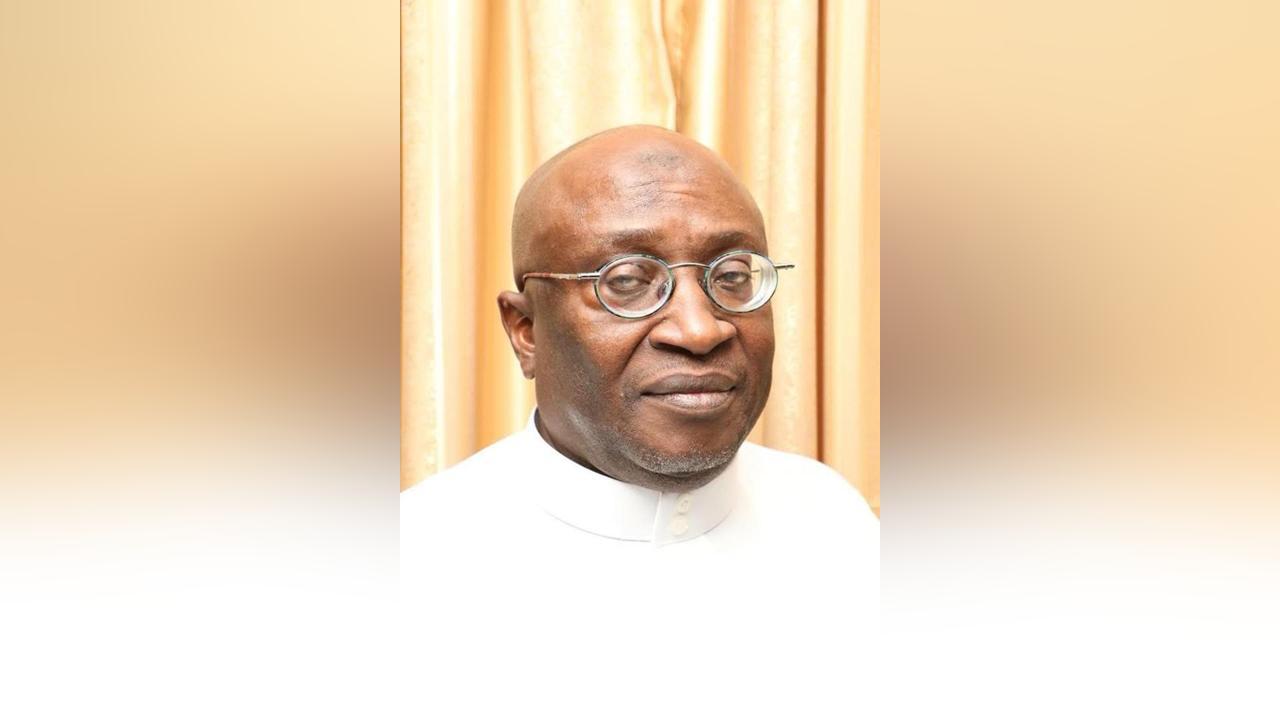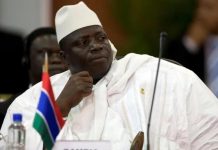Africa-Press – Gambia. Former Secretary General and Head of the Civil Service, Habib Drammeh, on Thursday appeared before the National Assembly’s Special Select Committee investigating the sale and disposal of assets belonging to former President Yahya Jammeh.
During his testimony, a heated exchange ensued between Mr. Drammeh and Lead Counsel Lamin Dibba over directives from the president to halt the sale of tractors ordered by the Janneh Commission. Counsel Dibba questioned the legality of the move, arguing that the commission was an independent body.
“At the time, you knew that the commission was independent; an instruction came to you to interfere, and you gave that instruction without advising the president. My conclusion from the evidence and what you have told us is that at the time you acted on those instructions, you knew that the commission was independent, and therefore you knew that your actions were an infraction of the law,” Counsel Dibba said.
In response, Mr. Drammeh said his actions were driven solely by the urgency and importance of the directive from the president’s office.
“Mr. Counsel, I am telling you once again, when that request came to me, we did not consider whatsoever in a small or big way the independence of the commission or the laws. We did not even think about those. We are basically acting on these two things, the urgency coming from the president’s desk and its importance,” the witness said.
As questioning continued, tensions rose between the two men. Mr. Dibba pressed the former Secretary General on whether the cabinet had interfered in the commission’s work—an allegation Mr. Drammeh firmly denied, stating that the directive came directly from the president and was considered urgent.
The exchange grew more contentious when Mr. Drammeh objected to what he described as “bullying” by the counsel.
“I will not accept that kind of bullying, my friend,” he retorted. “Please don’t try to bully me. I am just telling you a simple thing: don’t try to say you want to bully me for what purpose?”
Committee Chairperson Hon. Abdoulie Ceesay intervened, urging calm and directing both parties to focus on the specific issue at hand—Mr. Drammeh’s communication with former staff member Ebrima Ceesay regarding the tractor sale.
“I think if your response is exactly what you are saying, I will intervene so that the counsel proceeds with the testimony,” Chairperson Ceesay said.
Mr. Drammeh maintained that he had already provided his answer, prompting the chairperson to instruct Counsel Dibba to continue. However, Counsel Dibba insisted that his questions be fully heard and directly answered by the witness.
“I am not moving from this point, and if the chair wants to compel me to move from this point, I will ask that the chair take the button,” Counsel Dibba asserted.
Counsel Dibba further requested that the witness be cautioned to allow questions to be completed before responding.
“Honorable Chair, I wish for the witness to be reprimanded in the sense that he listens to the entire question and stops interrupting the question. I am not moving from this point. I will also wish to, since the witness mentioned that it seems as if I am bullying him to apologize if it seems that way, but I still stand my ground that I am not moving from this point,” Counsel Dibba said.
The witness accepted Counsel Dibba’s apology and, in turn, offered his own. He nevertheless maintained that he had adequately answered all questions put to him.
Committee Chairperson Hon. Abdoulie Ceesay then intervened, clarifying that the counsel’s question was specific—seeking to understand why the witness had not advised the president on the proper course of action regarding the matter. He urged the witness to respond so the proceedings could move forward.
In response, Mr. Drammeh cautioned the counsel not to “try to bully” him.
Counsel Dibba resumed his questioning, asking whether, at the time the decision was made to halt the sale of the tractors by the Janneh Commission, the witness and his team were aware that the commission was an independent body.
“Yes, I knew that the commission was independent,” Mr. Drammeh replied.
Counsel then pressed further: “What stops you from advising the president to approach the commission in the appropriate manner and not doing it in a clandestine manner as it was done?” Counsel Dibba asked.
The witness objected to the use of the word clandestine, describing it as too strong and requesting that it be withdrawn. Counsel Dibba refused, insisting that the term was appropriate.
“No it’s abusive in my view,” the witness responded.
Following a brief exchange, the term clandestine was replaced with improper.
Mr. Drammeh maintained his position, explaining that when the Secretary to the Cabinet conveyed the president’s directive to halt the sale of the tractors, he was in a meeting and instructed that the order be implemented immediately. He admitted that he did not, at the time, consider the legal implications highlighted by the counsel.
He added that the Ministry of Justice later advised that the action was procedurally incorrect. “I personally agreed that we made a mistake and decided to redirect the letter to the Minister of Justice, which we subsequently did,” he said.
Despite this explanation, Counsel Dibba expressed dissatisfaction with the witness’s responses.
For More News And Analysis About Gambia Follow Africa-Press






